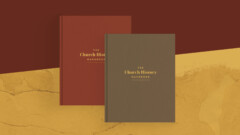Ann Voskamp sent me an email the other day. She invited me to bring my family to the Voskamp farm for a meal—they live just a couple of hours from us—to put people to the pixels, so to speak. It was a kind invitation and well-received. I am hoping that my family and hers can coordinate our calendars and make it happen.
Voskamp’s invitation came just a day after I reviewed her book One Thousand Gifts. I have a long history of reviewing books at this site. I didn’t set out to be a book reviewer—it just kind of happened. I love to read and I love to analyze what I’ve read. From there it is just a short step to put those thoughts into pixels and to post them for the world to see. I’ve done this five or six hundred times over the years, reviewing the good, the bad and the ugly of Christian publishing.
While I wouldn’t classify One Thousand Gifts as one of those books that inhabits the full-out ugly side of Christian publishing, neither did I find that I was able to recommend it. In fact, in my review I went so far as to say that it could well prove to be dangerous to some readers. The thread of mysticism influenced by the likes of Nouwen and Manning and Willard, the language of sexuality and ecstasy—these are genuinely troubling and I stand by the concerns I raised. If Ann and I manage to get together, I hope we can discuss these things as I will gladly share my concerns in far more words than I could use in my review. From the little I know of her, I believe she will be eager to hear and engage.
It bears saying as well that I feel no moral quandary about reviewing her book or any other and even warning of potential weaknesses. Any author who releases a book acknowledges that it is entering into the public sphere and may receive both praise and criticism. This is an inevitable component of making writing available to the public and it is one that authors welcome; it is an honor that other people consider your ideas worth discussing.
Seeing her name brought a sudden and surprising realization and with it a twinge of guilt and remorse.
Having said all of that, something happened inside me when I saw Ann’s name in my inbox, and that’s what has compelled me to write this little article. Seeing her name brought a sudden and surprising realization and with it a twinge of guilt and remorse. It has happened to me before, this strange feeling that comes when I suddenly realize that the name on the front of the book—“Ann Voskamp” in this case—is not some cleverly programmed, unfeeling robot that spits out blog posts and magazine articles and books, but a person. A real person. That should have been no great revelation, yet there have been too many times over the years that I have had to remind myself of this simple fact. I try to remind myself before posting a review; sometimes it only comes later.
Every word of One Thousand Gifts is a part of Voskamp just like every word I write is a part of me.
As I read back over my review of One Thousand Gifts I could see that I had neglected to remind myself while writing it that Voskamp is a real person and, not only that, but a sister in Christ. As a writer myself, I ought to remember that words are meaningful and revealing and in some way a part of the person who writes them. Every word comes from somewhere deep inside. Every word of One Thousand Gifts is a part of Voskamp just like every word I write is a part of me. There are no idle words in her book, no words that aren’t felt and meant. Yet in my review I had treated her as if her words mean less than mine, as if I was free to criticize her in a way I would not want to be criticized.
Looking back at my review, and perhaps even more, the process of writing it, there are at least two things that concern me. The first is that I would have said certain things differently had I known that she and I might soon be sharing a meal together. Let me give an example. Of Voskamp’s literary style I wrote, “There is clearly a kind of appeal to it so that those who don’t hate it, love it.” I ask myself, Would I have said that to a friend, that her words are hate-able, as if that could not be hurtful? Would I have said that to someone I had planned to share a meal with a few weeks later? Probably not. Why, then, would I say it at all?
The second concern is that I fear that I might have said certain things differently had I considered her an “insider,” a fellow member of whatever little circle of the Christian world I inhabit. That one may concern me even more. When writing about Voskamp’s experience in Notre Dame I asked, “What does she not understand about the gospel that her ecstasies have to happen in a place dedicated to a false gospel of salvation by grace plus works rather than a gospel of salvation by grace alone through faith alone?” Would I have asked it that way if Ann was someone I might be on a panel with at the next conference I attend? Probably not. I may even have assumed different things about the way she understands the gospel. And maybe I would have put more effort into discussing some of the book’s strengths and showing how they balance the weaknesses. I hope not, but I can’t deny that somewhere in my mind lurks this insider and outsider kind of thinking which somehow encourages me to extend greater courtesy to one group than another.
I did poorly here and I can see that I need to grow in my ability to critique the ideas in a book even while being kind and loving to its author. There was reason for the shame I felt when I saw that name in my inbox. I had put effort into reading the book and understanding and critiquing it, but no real effort into showing love and respect for the author. I had assumed poor motives and in arrogance and thoughtlessness had squelched useful discussion of the book’s strengths and weaknesses.
There is value in engaging the ideas in any book, and especially a book about this Christian life, but the desire to uphold truth has no business coming into conflict with love for another person. Truth and love are to be held together as friends, not separated as if they are enemies. In my desire to say what was true, I failed to love. I ask Ann’s forgiveness for this.










